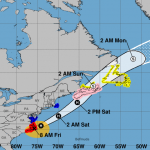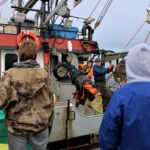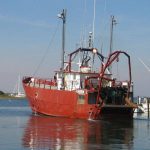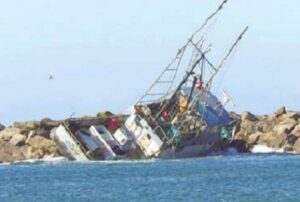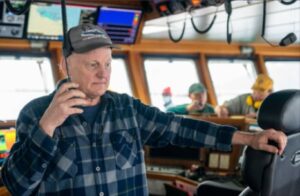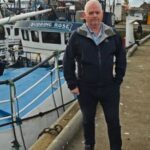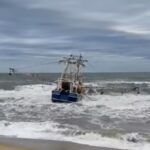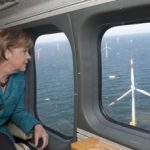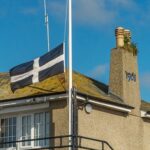Tag Archives: whale deaths

Climbing whale deaths sparks questions over offshore wind
A 20-foot dead whale washed up on Quonnie Beach in Charlestown in December, becoming one of several stranded whales found on beaches in Southern New England in 2024. It’s a trend that scientists have been watching over the past decade, when whale deaths started to drastically increase in the region. Every time a whale dies, hundreds of online comments blame offshore wind farms as the reason behind the death. University of Rhode Island Emeritus Marine Research Scientist Robert Kenney says there’s no evidence to back those claims. Last year alone, 28 dead whales washed ashore in Rhode Island and Massachusetts combined, compared to 16 in 2023, two in 2022, and 18 in 2021. Video, photos, more. >>CLICK TO READ<< 09:25

Experts say Trump is right yet all wrong on whale deaths
It is the first commercial-scale offshore wind energy project in the U.S. But is Vineyard Wind, under construction off the coast of Massachusetts, contributing to an increase in whale strandings? That’s what President-elect Donald Trump suggested at a Tuesday press conference, as he vowed to stop new offshore wind farms during his administration. “You see what’s happening up in the Massachusetts area with the whales,” Trump said. “They had two whales wash ashore in a 17-year period. And now they had fourteen this season. The windmills are driving the whales crazy.” Actually, what may be driving the whale’s crazy is the noise generated by the construction of the wind farm. It involves the placement of 62 turbines, one nautical mile apart. Video, more, >>CLICK TO READ<<08:01
Exploring the impact of offshore wind on whale deaths
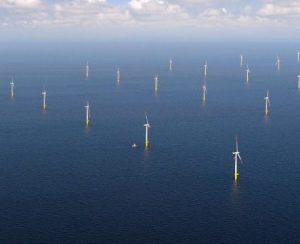 In the winter of 2022–2023, nearly a dozen whales died off the coast of New Jersey, near the sites of several proposed wind farms. Their deaths prompted concern that related survey work being conducted in the area somehow contributed to their deaths. The increased presence of these turbines in coastal waters, along with the noise from construction and surveys, has led to concerns of their impact on marine life. In particular, cetaceans such as whales and dolphins are likely to be sensitive to the noises and increased marine traffic brought by these turbines. However, the Marine Mammal Commission, a federal oversight agency, states there is no evidence linking the whales that died in the New Jersey region in the winter of 2022–2023 to wind energy development. more, >>CLICK TO READ<< 10:35
In the winter of 2022–2023, nearly a dozen whales died off the coast of New Jersey, near the sites of several proposed wind farms. Their deaths prompted concern that related survey work being conducted in the area somehow contributed to their deaths. The increased presence of these turbines in coastal waters, along with the noise from construction and surveys, has led to concerns of their impact on marine life. In particular, cetaceans such as whales and dolphins are likely to be sensitive to the noises and increased marine traffic brought by these turbines. However, the Marine Mammal Commission, a federal oversight agency, states there is no evidence linking the whales that died in the New Jersey region in the winter of 2022–2023 to wind energy development. more, >>CLICK TO READ<< 10:35
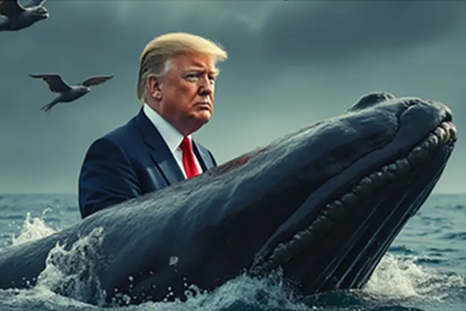
New Report Suggests “Whale Psychiatrist” Trump May be Right About Wind Farms and Whales
US Bureau of Ocean Management report says whales, dolphins, birds and bats can all be injured by wind turbine construction, and offshore fishing harmed. Trump has been an advocate for keeping America clean and healthy. He has not advocated for the anti-carbon push based on pseudoscience and the rush into green energy projects put forth by environmentalists. Admittedly. the National Oceanic and Atmospheric Administration (NOAA) has officials saying they have found no evidence linking offshore wind turbines to whale deaths. However, a new report from the U.S. Bureau of Ocean Energy Management (BOEM) has just released a new report that said whales, dolphins, birds and more can be exposed to “unavoidable adverse impacts” by the construction of offshore wind farms. more, >>CLICK TO READ<< 08:50
New Federal Report: Offshore Wind Farm Construction Can Harm Whales, Birds, Fisheries – >>CLICK TO READ<<
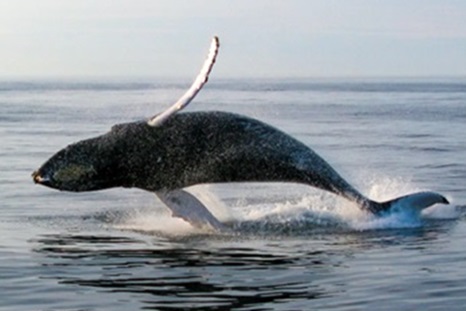
New Federal Report: Offshore Wind Farm Construction Can Harm Whales, Birds, Fisheries
The U.S. Bureau of Ocean Energy Management (BOEM) on Monday released a new report that said whales, dolphins, birds and more can indeed be harmed — and killed —by offshore wind farms. BOEM also warned commercial fishing could be disrupted by wind farms. The report is an environmental impact statement BOEM was required to conduct of these six existing wind farm sites that were previously approved off New Jersey/Long Island. Wind turbine construction actually does increase the risk of injury to whales, particularly the underwater noise from pile-driving during construction, the federal report found. Turbine construction can permanently damage whales’ hearing. Turbines can also lead to an “increased risk of individual injury and mortality due to vessel strikes” and entanglement in fishing gear. more, >>CLICK TO READ<< 07:36
Right whales and offshore wind: reflections on an uneasy coexistence
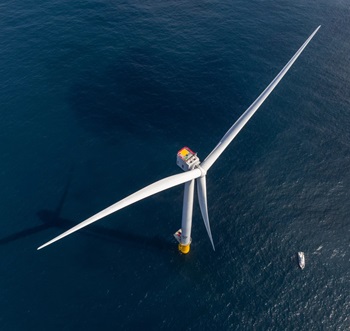 Michael Moore has spent decades studying North Atlantic right whales. He’s seen somewhere around 150 of them. It’s a feat, given that now there are just about 360 left in the world. But the veterinarian, author, and scientist emeritus from the Woods Hole Oceanographic Institution had never seen an offshore wind farm up close — until last week. “Look at them. All out in neat little rows,” he said, standing at the rear of a 53-foot charter boat that offered a closeup view of construction on Vineyard Wind, 15 miles south of Martha’s Vineyard. About half of the planned 62 turbines are fully constructed, reaching more than 250 meters into the sky. When the boat slowed down to pass beneath one of the turbines, Moore was awestruck by the length of a blade. “Right whales are 40 to 50 feet,” he said. “So, you can stretch seven right whales along the length of one of these blades.” Photos, more, >>CLICK TO READ<< 16:48
Michael Moore has spent decades studying North Atlantic right whales. He’s seen somewhere around 150 of them. It’s a feat, given that now there are just about 360 left in the world. But the veterinarian, author, and scientist emeritus from the Woods Hole Oceanographic Institution had never seen an offshore wind farm up close — until last week. “Look at them. All out in neat little rows,” he said, standing at the rear of a 53-foot charter boat that offered a closeup view of construction on Vineyard Wind, 15 miles south of Martha’s Vineyard. About half of the planned 62 turbines are fully constructed, reaching more than 250 meters into the sky. When the boat slowed down to pass beneath one of the turbines, Moore was awestruck by the length of a blade. “Right whales are 40 to 50 feet,” he said. “So, you can stretch seven right whales along the length of one of these blades.” Photos, more, >>CLICK TO READ<< 16:48
Lawmakers seek pause in offshore wind energy amid whale deaths
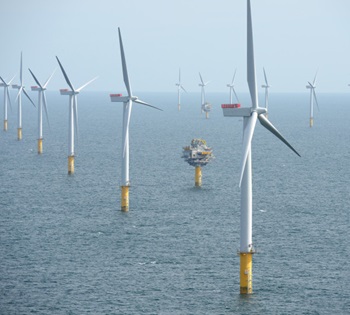 House lawmakers are seeking a pause in offshore wind energy projects amid a string of whale deaths along the coasts of Maryland, New York, New Jersey and Maine. Last week, a deceased whale beached off Maryland’s coast, the second whale carcass discovered in the area in three weeks. In 2023, 37 humpback whales carcasses were discovered along the East Coast. Rep. Andy Harris (R-Md.) hosted a public hearing in August in which experts testified about the danger installing wind turbines poses marine wildlife. Harris called for an end to offshore wind energy in Maryland. The Government Accountability Office plans to investigate the impacts of offshore wind development after Rep. Chris Smith (R-N.J) requested it look into the issues. more, >>CLICK TO READ<< 06:48
House lawmakers are seeking a pause in offshore wind energy projects amid a string of whale deaths along the coasts of Maryland, New York, New Jersey and Maine. Last week, a deceased whale beached off Maryland’s coast, the second whale carcass discovered in the area in three weeks. In 2023, 37 humpback whales carcasses were discovered along the East Coast. Rep. Andy Harris (R-Md.) hosted a public hearing in August in which experts testified about the danger installing wind turbines poses marine wildlife. Harris called for an end to offshore wind energy in Maryland. The Government Accountability Office plans to investigate the impacts of offshore wind development after Rep. Chris Smith (R-N.J) requested it look into the issues. more, >>CLICK TO READ<< 06:48
Technology Helping Prevent Whale Strikes
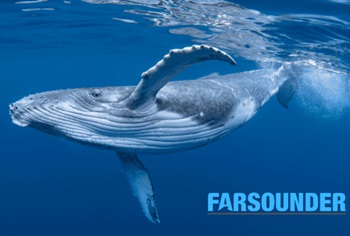 As many as 80 whales are estimated to die each year off the West Coast of the US as a result of ship strikes, and about a third of all Right Whale deaths in the Atlantic are attributed to ship strikes. Sperm Whales in the Mediterranean are also listed as an endangered species, and ship strike is their leading cause of death. Whale avoidance is clearly top of mind for mariners. It is time to explore how currently available technology can help in this endeavor. As the world looks to new technologies to assist in whale avoidance, it is important to ensure there is no impact on the whales and the environment. Likewise, as governmental regulations evolve, operating vessels near whales requires a strong understanding of the rules implemented to protect them. There should be strict adherence to safe practices that coincide with the use of the right technologies. more, >>CLICK TO READ<< 10:42
As many as 80 whales are estimated to die each year off the West Coast of the US as a result of ship strikes, and about a third of all Right Whale deaths in the Atlantic are attributed to ship strikes. Sperm Whales in the Mediterranean are also listed as an endangered species, and ship strike is their leading cause of death. Whale avoidance is clearly top of mind for mariners. It is time to explore how currently available technology can help in this endeavor. As the world looks to new technologies to assist in whale avoidance, it is important to ensure there is no impact on the whales and the environment. Likewise, as governmental regulations evolve, operating vessels near whales requires a strong understanding of the rules implemented to protect them. There should be strict adherence to safe practices that coincide with the use of the right technologies. more, >>CLICK TO READ<< 10:42
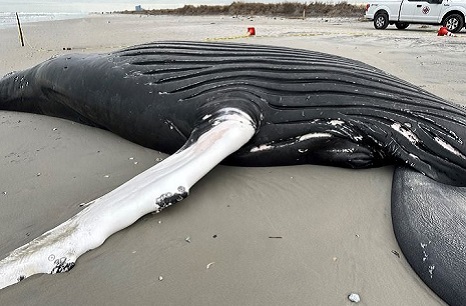
Green Groups Turn a Blind Eye to Mysterious Increase in Whale Deaths
Several environmentalist groups campaign against offshore oil and gas projects because of their ecological impacts, but those same groups appear to apply less scrutiny to the potential impacts of offshore wind developments. The Sierra Club, the League of Conservation Voters (LCV) and Greenpeace have all advocated for East Coast offshore wind projects amid the increase in whale deaths after slamming offshore oil and gas projects for their environmental impacts. The National Oceanic and Atmospheric Administration (NOAA) has declared “unusual mortality events” for humpback and North Atlantic right whales since 2016 and 2017, respectively, a timeline which generally coincides with the start of offshore wind development off of the East Coast in 2016, according to NOAA’s website. >>click to read<< 12:09
Save Right Whale Coalition Sickened Over Government Response to Deaths of Whales in NY, NJ
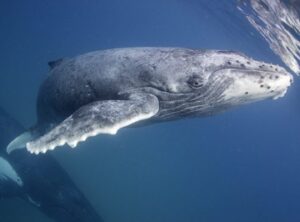 New York and New Jersey are witnessing an alarming increase in whale deaths, with 23 known fatalities in less than a year, sparking concerns and anger among environmental activists and political figures. Critics of offshore wind farm developments, including David Shanker, the New Jersey Spokesperson for Save Right Whales Coalition, are attributing the tragic deaths to sonar blasting activities related to wind turbine construction. A coalition of political figures including Representative Jeff Van Drew (NJ), Representative Jeff Smith (NJ), the Commissioners of Cape May County, and 50 Coastal Mayors have asked President Biden and New Jersey Governor Phil Murphy for a moratorium on the sonar blasting to investigate the cause of the whale deaths. However, their pleas have so far been met with silence, even as the Save Right Whale Coalition prepares to release a documentary with evidence linking sonar testing vessels to whale deaths. >click to read< 07:46
New York and New Jersey are witnessing an alarming increase in whale deaths, with 23 known fatalities in less than a year, sparking concerns and anger among environmental activists and political figures. Critics of offshore wind farm developments, including David Shanker, the New Jersey Spokesperson for Save Right Whales Coalition, are attributing the tragic deaths to sonar blasting activities related to wind turbine construction. A coalition of political figures including Representative Jeff Van Drew (NJ), Representative Jeff Smith (NJ), the Commissioners of Cape May County, and 50 Coastal Mayors have asked President Biden and New Jersey Governor Phil Murphy for a moratorium on the sonar blasting to investigate the cause of the whale deaths. However, their pleas have so far been met with silence, even as the Save Right Whale Coalition prepares to release a documentary with evidence linking sonar testing vessels to whale deaths. >click to read< 07:46

The Truth About Offshore Wind: Busting Oil Money Myths and Misinformation
The various organizations, news outlets, and elected representatives that have been promoting misinformation about offshore wind have two things in common: 1) conservative politics and 2) ties to the oil industry. Seemingly locally run nonprofits have been leading public anti-offshore wind campaigns, purportedly out of concern about the dangers offshore wind farms present to whales and local economies. Yet many of these same organizations have proven ties to major conservative lobbyist groups funded by “Big Oil.” Meanwhile, both local and congressional conservative politicians have jumped on these misinformation campaigns, especially in the Northeast, where the first offshore wind farms are set to be constructed this year. This is despite several state and national polls showing that Americans overwhelmingly support the construction of offshore wind farms. >click to read< 08:04
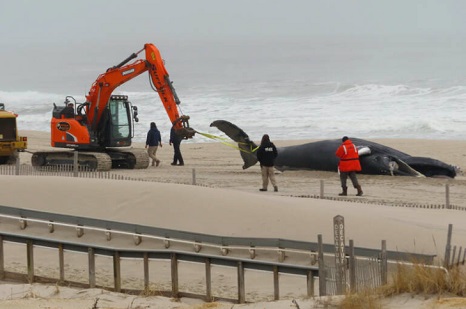
N.J. GOP seeks wind projects halt to see if whales benefit
Four state senators hosted a online hearing about offshore wind energy generation and whale deaths, three weeks after the most recent East Coast whale death was reported and despite the assurances of most scientists and conservationists that there is no correlation. The two-hour hearing came a week after Democrats, who control the Legislature and the governorship, held a similar hearing and many of New Jersey’s major environmental groups said the greatest danger to whales is climate change, not offshore wind generation. “I’ve been labeled a climate change denier and a tin-foil hat wearer,” said Jim Hutchinson, managing editor of The Fisherman,,, U.S. Rep. Frank Pallone Jr., who represents part of the Jersey Shore and who led last week’s Democratic-led forum, said pausing offshore wind projects wouldn’t prevent whale deaths. >click to read< 08:05
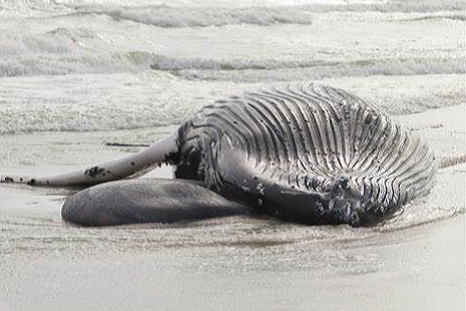
Dem senators from 4 states ask NOAA to address whale deaths
Democratic U.S. Senators from four states want federal environmental officials to address a spate of whale deaths on both coasts, urging “transparency and timeliness” in releasing information about whale deaths and their causes. The call late Tuesday by New Jersey Sens. Robert Menendez and Cory Booker; Connecticut Sen. Richard Blumenthal, Oregon Sen. Jeff Merkley, and Rhode Island Sen. Sheldon Whitehouse for action by the National Oceanic and Atmospheric Administration marked the first large-scale request for action by Democratic federal lawmakers on an issue that has rapidly become politicized. Thus far, mostly Republican lawmakers have called for a pause or an outright halt to offshore wind farm preparation work, which they blame for the deaths of whales along the U.S. East Coast since December. But in their letter to a NOAA administrator, the Democratic senators conspicuously did not blame — or even mention — offshore wind as a potential cause of the deaths. >click to read< 16:52
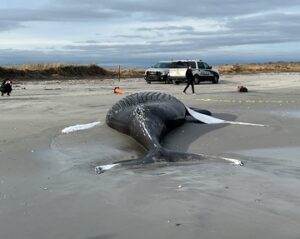
Anti–wind farm petition takes off, nearing 250k signatures
A petition drive that demands a halt on wind farm projects following whale deaths along the coast has collected more than 240,000 signatures so far. (As Monday morning, March 13, the petition had more than 318,000 signatures.) Ocean City wind farm opponent Suzanne Hornick, one of the founders of Protect Our Coast NJ, which began in 2019, said it is time to stop offshore wind acoustic testing. Gov. Phil Murphy, a strong supporter of offshore wind technology, wants New Jersey to become a leader in green energy. So far, New Jersey has approved three offshore wind farms and is looking to add more. But it appears that many New Jersey residents are opposed to the wind farms,,, >click to read< 11:36
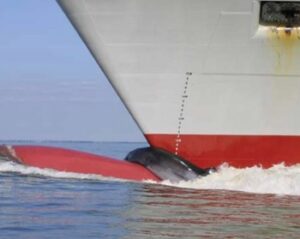
Whale death confusion abounds, and some is deliberate
Press coverage of the tragic whale deaths is a supreme study in confusion, especially the foolish attempts to somehow exonerate offshore wind development. Here are some prominent examples. The evergreen New York Times wins the race for worst coverage by claiming to explain the numerous recent whale deaths as due to online shopping. I am not making this up. Their headline promises an explanation: “Why 23 Dead Whales Have Washed Up on the East Coast Since December”. The primary reason claimed is that East Coast shipping has increased due to people buying lots of stuff post Covid, especially online, and ship strikes account for a lot of the deaths. >click to read< 13:11
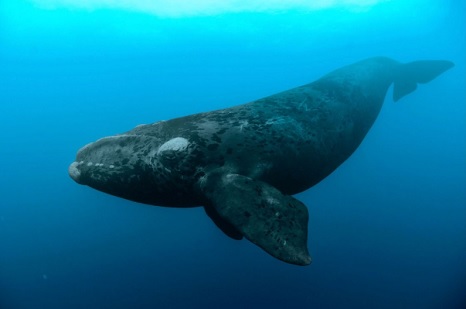
Blue State Enviro Groups Demand Answers From Green Biden Administration On Whale Deaths
Nonprofit groups in the state’s coastal towns have spent months trying to get the administration to place a moratorium on offshore wind projects until a thorough, transparent investigation can be completed to see if there is a connection to recent whale strandings. Since December 2022, over 20 whales have washed up along east coast shores near survey sites for future offshore wind projects in an unusual mortality rate, according to NOAA. “The low-frequency sonar used in the windmills is causing deafness in the whales. It’s one of those things that science is only going to pick up on years after the fact, in the meantime, whales are being killed,” James Lovgren, board of trustee member of Clean Ocean Action and retired commercial fisherman, told the DCNF. “You have to pause and ask, ‘why are we doing this?’” >click to read< 09:17
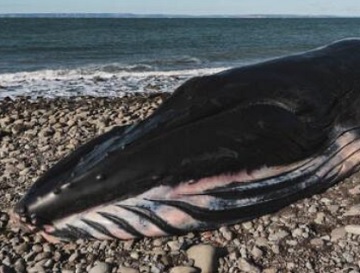
How Many More Whales Need To Wash Up Before We Wake Up? NOAA Shrugs Responsibility Regarding Spike In Whale Deaths
If you’ve taken the time to read anything the NOAA has published to address the spontaneous spike in whale deaths, and whales washing up on East Coast beaches, you may have noticed that the report skirts around the cause of the whales’ deaths. While they do acknowledge the public’s concerns connecting the whales’ health and the recent establishment of offshore wind energy development, they say, “At this point, there is no evidence that noise resulting from wind development-related site characterization surveys could potentially cause mortality of whales, and no specific links between recent large whale mortalities and currently ongoing surveys.” (All sources are linked below – I highly encourage you to look into them!) >click to read< 08:41
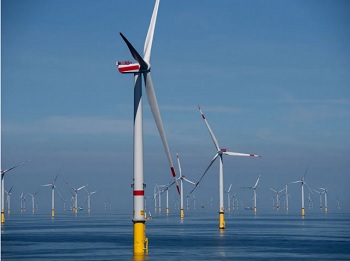
Whale deaths exploited in ‘cynical disinformation’ push against wind power, advocates say
Efforts to stop wind turbines off the Atlantic coast have a new mascot: the whale. A dozen New Jersey beach town mayors and several other groups now argue offshore wind power activity could be the cause of recent whale deaths and wind projects must be stopped while scientists investigate. But those most vocal about their concern have been silent in recent years as whale strandings surged along the East Coast. Wind energy supporters and whale advocates say these groups and politicians appear to be using whales as pawns. >click to read< 10:17
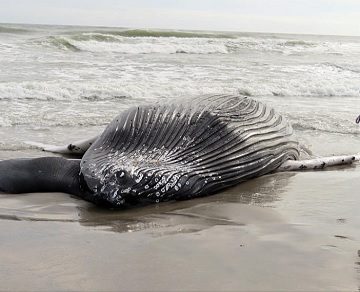
Pleas to pause wind farm plans over whale deaths have fallen on deaf ears: ‘Reeks of hypocrisy’
The mayor of Point Pleasant Beach, N.J., Paul Kanitra, has a theory on what may be behind the mysterious string of whale deaths that has left officials speechless. Since offshore wind energy development began in December, the region has witnessed 18 whale deaths – a severe uptick that is not a “coincidence,” the New Jersey mayor argues. “In a normal year, the Jersey Shore coast and in the tri-state area, we have one, two, maybe three whale deaths. Since they started doing this sonar testing, which started in December, we’ve had eight whale deaths off our coast, and that seems a lot more than a coincidence to us,” Kanitra said on “America’s Newsroom,” Friday. >click to read< 09:00

12 Jersey Shore mayors call for moratorium on offshore wind following whale deaths
The announcement followed news that another humpback whale had died off of the coasts of New Jersey and New York and washed ashore in Lido Beach, Nassau County, New York, according to numerous reports. “While we are not opposed to clean energy, we are concerned about the impacts these (offshore wind) projects may already be having on our environment,” the 12 New Jersey mayors wrote in a joint letter to Washington officials. On Saturday, a dead humpback was seen floating about 12 miles off Long Beach Island, said Andrea Gomez, a spokeswoman for the Greater Atlantic Regional Fisheries Office at the National Oceanic and Atmospheric Administration, or NOAA. It was not clear Monday if the Lido Beach whale could be the same one spotted off Long Beach Island. >click to read< 10:48
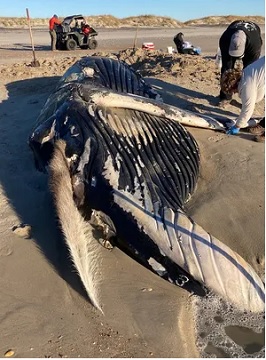
Whale deaths in NC and along the East Coast have officials searching for answers
On Jan. 7, a critically endangered North Atlantic right whale calf was found dead, wedged under a pier in Morehead City. In the previous month, three humpback whales washed up on beaches between Beaufort and the northern Outer Banks. The four North Carolina deaths are part of at least 14 whales that have washed up on East Coast beaches since Dec. 1. Federal officials, scientists and conservation groups have said there could be multiple factors contributing to the rise in whale strandings, including an increase in the population of the Western North Atlantic humpback whales. But one idea that’s gained traction online and among some coastal residents and politicians is that huge offshore wind farms planned off many East Coast states, including North Carolina, could be harming the marine mammals. >click to read< 08:46
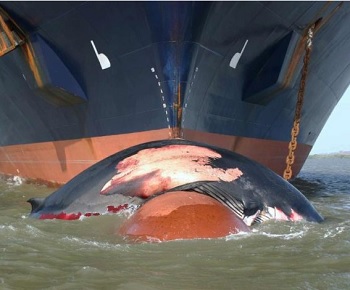
While cargo shipments boom, ship strikes imperil whales in California and worldwide
Earlier this year, horrific photos of two fin whales pinned to the hull of an Australian naval ship gained worldwide attention. The vessel had been conducting exercises in the waters near San Diego. The two bodies, one 65 feet long, the other just 25 feet, were draped over the hull. “Anywhere you have major shipping routes and whales in the same place, you are going to see collisions,” said Russell Leaper, an expert with the International Whaling Commission. “Unfortunately, that’s the situation in many places.” While gray whales and humpbacks make up 70% of the reported strikes in the government’s database, it’s the endangered and threatened populations such as North Atlantic right whales and the gargantuan Pacific blues that concern scientists the most. For those whales, each death comes with a risk of population or species extinction. >click to read< 12:06
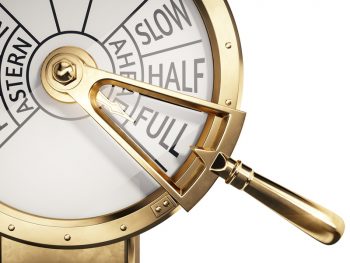
Report: 4 of 5 Gulf of St. Lawrence area right whale deaths investigated last year were caused by ship strikes
The report, compiled by the Marine Animal Response Society and Canadian Wildlife Health Cooperative, says vessel strikes caused four out of the five whale deaths investigated last year. A total of nine right whales were found dead in and around the Gulf of St. Lawrence in 2019. The report released Wednesday focused on the necropsy results for five right whales, all found dead between June and July 2019. It found vessel strikes caused the death of four of them, but the necropsy investigation could not determine the cause of death of the fifth. >click to read< 14:42
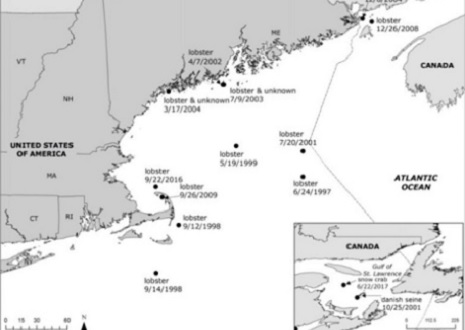
North Atlantic Right Whale: How to kill a species with Fake News, from National Geographic of all places!
“Fishing without vertical lines is what is going to save this species.“ says CT Harry of the IFAW who work hand in hand with NOAA. A ridiculous statement in view of the 18 cruise ship strikes in the Gulf of St. Lawrence (GSL) in the past few years, in all of NE over 20 years. ¼ whale per year by the lobster industry. Eighteen ship strikes in the GSL over the past 3 years averages 6 per year. These people are killing 24 whales while those people kill one. by Jim O’Connell >click to read< 13:22
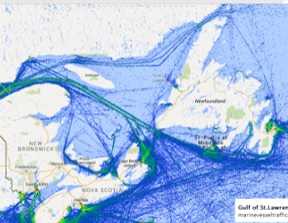 Most likely Carnival Cruise Lines is responsible for 18+ Right Whale deaths in the past 3 year, at which rate they would soon be extinct. – Human caused Right whale deaths have suddenly, in sync with a plummeting whale birthrate, put the right whale on the path to extinction. Why their birth rate, births per year, declined since a tremendous surge in 2000-2009 from 350 to 500 is unknown. In 2018 it hit bottom as no calves were born. >click to read<
Most likely Carnival Cruise Lines is responsible for 18+ Right Whale deaths in the past 3 year, at which rate they would soon be extinct. – Human caused Right whale deaths have suddenly, in sync with a plummeting whale birthrate, put the right whale on the path to extinction. Why their birth rate, births per year, declined since a tremendous surge in 2000-2009 from 350 to 500 is unknown. In 2018 it hit bottom as no calves were born. >click to read<
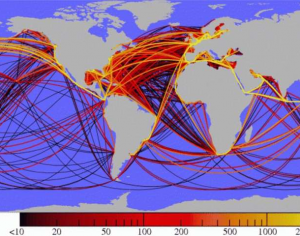
Whale Deaths and Ship Strikes: The casualty of a global problem
A humpback whale was recently spotted in the River Thames near London. This unusual sighting sparked national media interest, similar to “Benny” the beluga who also called the river home for several weeks last year. However, while Benny eventually left the Thames and headed home to the Arctic, the humpback whale was not so lucky. Ironically, despite the human-interest factor, the whale died as a result of human impact. In doing so, it had the dubious honor of being the first humpback whale known to have died in UK waters from being hit by a vessel. >click to read< 08:41
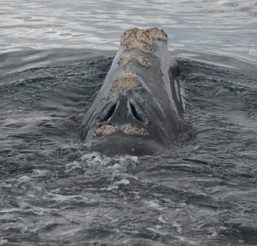
Opinion: Focus on oil industry, not lobstermen, in whale deaths
I went to the Aug. 20 meeting at NOAA regarding the lobster trap lines and the entanglement of the right whales.,, Larry Stepenuck brought up the problem of the mussel farms and their spat lines – another potential cause of whale entanglements. What! Is nobody hearing him? I think lobsterman Mike Goodwin also brought up a good point,,, It’s a gold mine out there. The big oil rigs with their seismic testing, wind farms, fish farms, mining of the ocean floor, etc., want a piece of the action, and those pesky lobstermen are raining on their parade. by Sue Waller, >click to read< 20:43
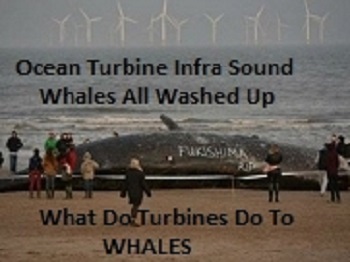
Killing Whales To Save Polar Bears: Wind Turbine Infra-sound
The year 2016 was the first year the United States deployed ocean wind turbines which coincide with the whale beachings. Construction of the Block Island, Rhode Island ocean wind turbine started in January of 2016. The construction took place underwater placing miles of electric cables. Construction noise underwater increases.Electric cables generate EMF. Sources of ELF-EMFs include power lines, electrical wiring, and ocean wind turbine construction. The increase in the Whale deaths began when the construction of the Rhode Island ocean wind turbines began,,, by Frank Haggerty >click to read< 17:15
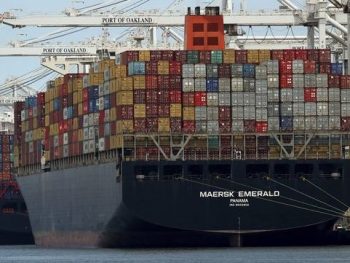
Whales are facing a deadly threat along West Coast: container ships
One day last May, a container ship entered the San Francisco Bay with extra cargo. A 45-foot-long dead female fin whale was draped across the ship’s bow. The impact with the ship had broken her back, ruptured her organs and caused severe internal bleeding. Ten whale deaths were attributed to ship strikes in 2018 – the highest number on record in California since NOAA Fisheries began tracking in 1982. The mortality rate represents an enormous increase from the average 3.4 ship strike victims recorded annually in the five previous years. Five of the 10 whales that died with boat collision injuries in 2018 were endangered or threatened fin, blue and humpback whales. >click to read<15:29

Low numbers of endangered whales raise question about lobster industry impacts
Woods Hole Oceanographic Institution scientist Mark Baumgartner said that to help the whales survive much longer, the ropes Maine lobstermen use to tend their traps have to be modified or even eliminated. And it’s not just for the whales’ sake. “I feel the industry is in jeopardy,” Baumgartner said.,,, Last month the Conservation Law Foundation’s Portland office filed a federal lawsuit against the National Oceanic and Atmospheric Administration for violating the Endangered Species Act. >click to read< 12:10

































